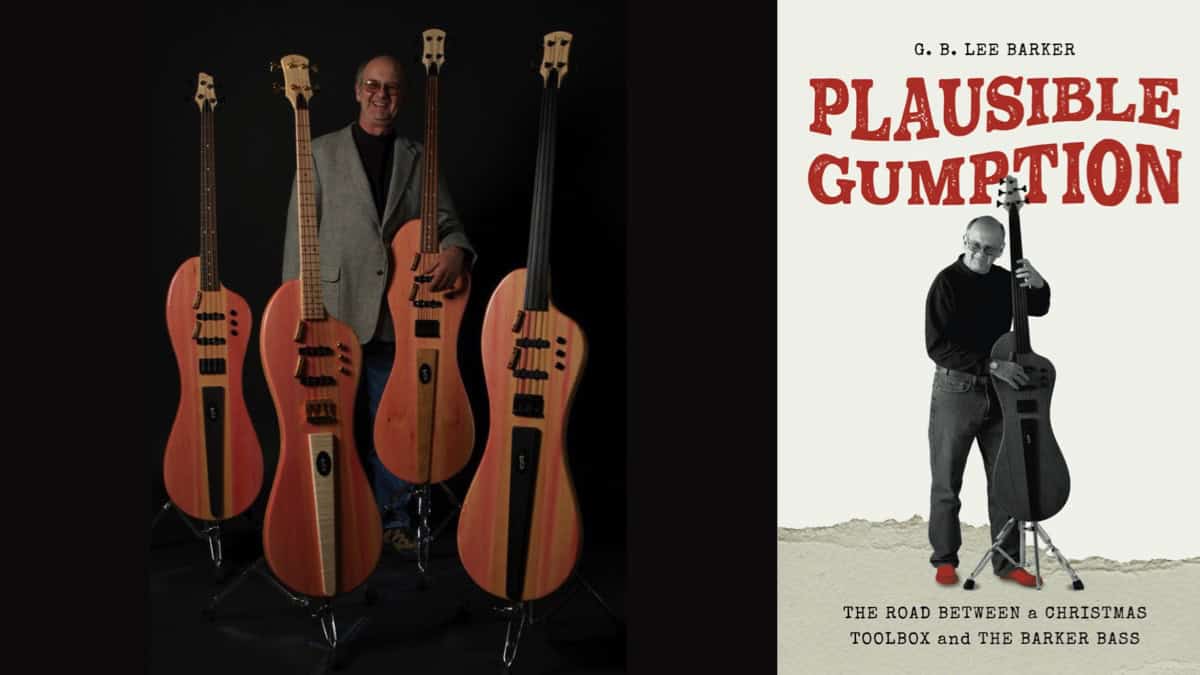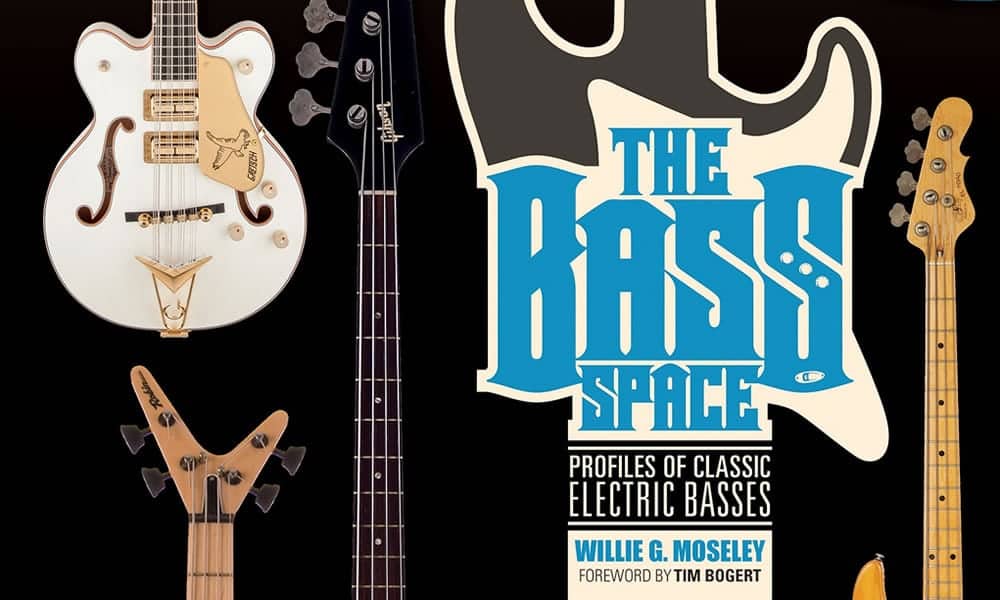Bass Books
Serious Electric Bass: The Bass Player’s Complete Guide to Scales and Chords

Serious Electric Bass: The Bass Player’s Complete Guide to Scales and Chords…
Serious Electric Bass The Bass Player’s Complete Guide To Scales And Chords. Bass basics, major scales and modes, harmonic and melodic minor scales and modes, arpeggio patterns and symmetric scales (whole tone and diminished). Written in Standard notation only (no tab). 273 pages.
OPENING…
You are soloing all day, every day!
‘I’m soloing all day, every day? What are you joking?’
No, I’m not joking. Every day, from the time you get up in the morning until the time you go to sleep at night, you are taking solos-language solos for our purposes, English solos, the language you are reading and understanding right now. Unless you’ve written and memorized a script the night before, every word you say during the day is said as a result of something you happen to be, thinking or in response to something said to you. You might start a conversation by saying ‘How are you?,’ or you might respond to same question that is asked of you by saying ‘I’m fine.’ Clear question, clear answer.
You can do this because you understand every word that you say and every word that is said to you. In fact, when you are speaking, you rarely think about each individual word. You don’t have to anymore. You know how to combine the sounds of the language into words, phrases and sentences that ape understood by people who speak the same language. If you can’t find the exact word to convey what you are trying to say, you can either ask for help or go and look it up yourself. If someone says something that you don’t quite understand, you can ask them to say it in different ways until you understand it perfectly. No problem. You’ve been taking language solos for years!
If you can think it, you can say it. If you can hear it and understand it, you can respond to it.
The building blocks that create both spoken and musical languages are very similar. Check out this list.
1. Both use the same alphabet. English uses A to Z. Music uses A to G.
2. Both can be written down and read by others.
3. Both have a basic vocabulary. English has simple words. Music has simple scales and triads-a, basic sonic vocabulary.
4. Both have expanded vocabularies that add clarity, variety and impact to what you are saying or playing. English has ‘big words.’ Music has exotic-sounding scales and chords.
5. Both require that things be spelled a specific way to be understood. The word bass is alwaysspelled b-a-s-s. An F chord is always spelled F-A-C.
6. English has phrases. Music has melodic and rhythmic phrases.
7. English has statements. Music has the melody.
8. English has stories. Music has songs.
9. Stories have paragraphs that divide them up. Songs have sections that divide them up-the intro, letter A, letter B, coda.
10. Eng1ish has dialects. You can tell if someone is from Tennessee or New York! Music has styles.
11. Plays have scripts that you memorize. Our music has chord progressions, bass lines and solos,that you memorize. As your sonic vocabulary and your technique on the bass grow, you’ll be, able to write your own scripts using every ounce of creativity you have.
Your ability to communicate clearly, effectively and creatively depends entirely upon how well you understand the language you are speaking. Our language, as musicians, is the language of music. This Book was written to help you to enhance you ability to think, speak, hear and understand the language of music on the bass.
Serious Electric Bass: The Bass Player’s Complete Guide to Scales and Chords available at Amazon.com
Bass Books
Interview With Barker Bass’s Inventor and Writer Lee Barker

If you are an electric bass player, this is an exciting time to be alive as this relatively new instrument evolves around us. Some creative individuals have taken an active role in this evolution and made giant leaps in their own direction. Lee Barker is one of these inventive people having created the Barker Bass.
Fortunately, Lee is also an excellent writer (among so many talents) and has recently released his book “Plausible Gumption, The Road Between a Christmas Toolbox and The Barker Bass”. This book is a very fun read for everyone and shares a ton of details about Lee’s life in general, his experiences as a musician, a radio host, and a luthier. Now I am fortunate to have the great opportunity to gain even more insights into this renaissance man with this video interview.
Plausible Gumption, The Road Between a Christmas Toolbox and The Barker Bass is available online at Amazon.com
Bass Books
Ultimate Look at Electric Basses from 1930 to Today

The Bass Space: Profiles of Classic Electric Basses.
The definitive book for lovers of the low-end. Willie G. Moseley, Senior Writer for Vintage Guitar Magazine, profiles more than 100 historic and unique electric bass models from such makers as Alembic, Danelectro, Fender, Gibson, Gretsch, Guild, Hamer, Kramer, Rickenbacker, and many others.
Rare and legendary instruments, from the earliest attempts at amplified basses in the mid-1930s to the cutting-edge instruments of today, are presented in more than 250 color and period photos.
The main feature of this book is the exclusive coverage of historic and one-of-a-kind basses owned and played by such famed musicians as: Bill Black (Elvis Presley), Tim Bogert (Vanilla Fudge), Mark Egan (Pat Metheny Group), John Entwistle (The Who), Paul Goddard (Atlanta Rhythm Section), Bruce Hall (REO Speedwagon), Greg Lake (Emerson, Lake & Palmer), Benjamin Orr (The Cars), Tom Petersson (Cheap Trick), Carl Radle (Derek and the Dominos), Gene Simmons (Kiss), Steve Wariner, and others.
The Bass Space: Profiles of Classic Electric Basses is available online at Amazon.com
Bass Books
Review: The Bastard Instrument, A Cultural History of the Electric Bass by Brian F Wright

I was intrigued when The Bastard Instrument showed up on my desk… let’s dig in!
When we dive into the history of our beloved instrument, the bass, we find roots that go back as far as the 15th century. This instrument was a member of the violin family and was for the longest time, an acoustic instrument. As the years passed and music changed, there was a need for the instrument to evolve and the electric bass was born.
Comparatively, the electric bass is a relatively new instrument with its earliest appearances dating back to the 1930s and it is exciting to be an electric bass player while this history unfolds around us. Fortunately for us and future generations to come, Professor Brian F. Wright has taken on the herculean task of documenting the trajectory of the electric bass with this excellent book.
The Bastard Instrument presents an extraordinary amount of fine details about the instrument itself, the development of the amplification to handle its output, the pioneers that dared play it, the rapidly evolving music that flourished because of its presence and so much more.
When I first started reading this book, I noticed that it felt a tad academic, like a textbook (it might be one someday) or a doctoral thesis, but to present all this information accurately, this approach is more than appropriate. Another detail that might be a bit of a spoiler is that the book only gets us up to the late ’60s. I was left wanting more as we know that so much has happened in the bass world since that time frame; I hope there is another volume in the works to get us up to the present!
All in all, “The Bastard Instrument, A Cultural History of the Electric Bass” is a must-read for all of us who play electric bass and understand its essential place in music.
I found that there was a lot that I already knew but also quite a bit that I was unaware of. I believe that to know and understand where you are, you must know the history of exactly how you got here.
Highly recommended.
The Bastard Instrument is available at Amazon.com (beginning July 2024)
Bass Books
Review: The Bassist’s Complete Guide to Injury Management, Prevention and Better Health

The Bassist’s Complete Guide to Injury Management, Prevention and Better Health
I have often thought that it would be great if the doctors who delivered us as newborn babies provided us with a user manual to help us navigate through life in the best way possible. Now Dr. Randall Kertz, D.C. has produced a manual specifically designed to address the many possible afflictions plaguing us bass players.
Many of you will remember volumes 1 & 2 of this book and our first review in 2007. The new complete guide combines the two volumes and features over 20 pages of new material including interviews, techniques, and conditions.
If you play bass, you can read this book cover to cover and walk away with a ton of relevant and helpful knowledge. Another option is to search out issues relevant to you specifically (I found quite a few of my own with helpful options). This is possible because the book is very nicely organized into six chapters that address Pain, Conditions, Techniques, Road Issues, Inspirational Q&A with some of the biggest names in the bass community (too many to list here) and finally How to get relief.
All said, this book is essential if you play either electric or upright bass to the point where they should issue you one when you get that first bass in your hands.
Lastly, if you have this book and you have specific questions, Dr. Kertz is readily available through his website, www.drkertz.com. As if that was not enough, he has a wealth of knowledge you can find right here on our website at bassmusicianmagazine.com/author/randallkertz
Get this book… Live long and play bass well into the years! Available on Amazon.com
Bass Books
The Bassist’s Complete Guide to Injury Management, Prevention & Better Health

The Bassist’s Complete Guide to Injury Management, Prevention & Better Health is now available!

A compilation of Volumes 1 & 2 of the acclaimed Bassist’s Guide with 20+ pages of new interviews, techniques, and conditions, The Complete Guide puts everything in one convenient place.
Available at Amazon.com and from our friends at Bassline Publishing
Follow Dr. Kertz’s Bass Player Health at Bass Musician Magazine




















